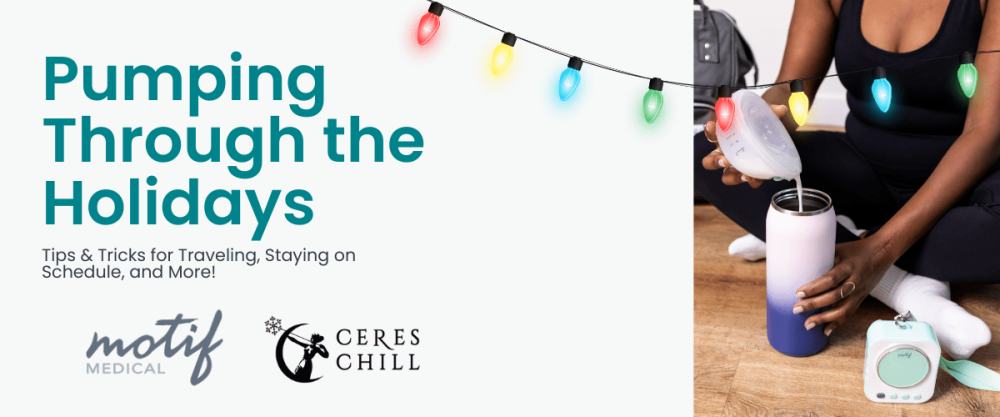Using Allergy Medications While Breastfeeding
Labels, misinformation, outdated information, and access to online sources make navigating the use of medications while breastfeeding and pumping quite complicated. Let's gather what information is actually needed, common myths, and resources to check and discuss with your healthcare provider when seasonal allergies hit.
Not all medications and supplements are created equally, both in specific ingredients, active ingredients, and concentration or dosage- even if meant for the same effects or treatment. Pain medications are a great example of this. Some medications are fine to use while pregnant, but not while breastfeeding and pumping, and vice versa. Some over-the-counter (OTC) and prescription (Rx) medications are actually fine to take while continuing to provide breastmilk.
But for cold and allergy medications, it's a different story. Many of these medications and decongestants contain antihistamines, such as pseudoephedrine, designed to dry up or reduce mucous secretions. With this in mind, these have also been shown to dramatically reduce milk supply capabilities as well, as the medications cannot specifically target sinus and mucous drainage.
Antihistamines are also known for causing drowsiness in some instances, and if the medication travels through the milk, it can also make the baby sleepy, too, which could be dangerous in many cases.
Breastfeeding moms need to wary of the following (but not limited to) allergy medications commonly used for seasonal allergies, according to Lactmed:
- Sudafed (Pseudoephedrine) *at higher dosages or in combination with other medications.
- Benadryl (Diphenhydramine) *at higher dosages or in combination with other medications.
- Allegra (Fexofenadine) *at higher dosages or in combination with other medications.
- Claritin (Loratadine) *at higher dosages or in combination with other medications.
Consider as an alternative: Oxymetazoline Nasal Spray or Zyrtec (cetirizine)
Do not use this information as medical advice, or instruction. Please discuss with doctor and pharmacist.
Fortunately, with the medications that are contraindicated, there is almost always an alternative or a safe dosage amount. Discuss with your care provider or pharmacist about a safe option. You can use Lactmed as starting place and reference point when having these discussions about medications. Lactmed is a catalog by the National Institute of Health (NIH) that provides research-based information for breastfeeding mothers and health care professionals. It will provide information on any side effects, such as milk production impacts or medication transfer in the mother’s milk. You can look up allergy medicines that over-the-counter or prescription, and even by generic name.
If you notice that your baby is not feeding as well as usual, or you have any other concerns about your baby, talk to your health visitor, midwife, pharmacist or doctor as soon as possible.
Natural and Alternative Relief
While some medicines may need to be completely avoided, there are alternatives available with others. Ask about and discuss these options with your care provider. Low risk, comfort measures are also a great route to take in substitution of certain medications, depending on the allergy symptoms.
For example, since so many medications used for cold and sinus relief should not be used while lactating, other methods to treat the allergy symptoms in the breastfeeding mother and boost the immune system are:
- Steam, hot showers
- Saline-based nasal sprays
- Eye Drops (sodium cromoglicate, specifically)
- Garlic and turmeric- anti inflammatory / natural antihistamine properties that can combat histamine responses
- Citrus fruits and green, leafy vegetables for vitamin C
- Eggs, bone broth, mushrooms, dairy, and sunlight for vitamin D
- Hanging eucalyptus in the shower or diffusing the oil
- Epsom Salt baths (great source of magnesium!)
- Fluids; drinking water and electrolytes helps flush the body
- Warm honey for sore throat


When Allergies Turn Into Sinus Infections
When being prescribed antibiotics, be sure to let the provider know your breastfeeding status as these can affect lactation. Some antibiotics are contraindicated to take for breastfeeding mothers or while pumping.
If pain meds are needed in conjunction for fever, malaise, or pain, be familiar with the differences and recommendations between acetaminophen versus ibuprofen.
Information provided in blogs should not be used as a substitute for medical care or consultation.









